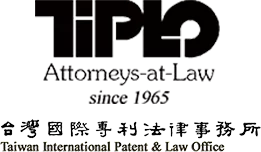Taiwan Supreme Administrative Court finds “Boy London” mark unregistrable
E220818Y2 Nov. 2022(E271)
Grace Optical Co., Ltd. (hereinafter “Grace Optical”) filed an application with the Taiwan IPO for registering “Boy London” as a trademark (hereinafter “proposed mark”) on February 26, 2018, but the application was rejected with the proposed mark being found unregistrable by the Taiwan IPO on the ground that the proposed mark was likely to mislead people with respect to the place of origin of the products or services under the proposed mark. Dissatisfied with Taiwan IPO’s rejection, Grace Optical filed an administrative appeal with the Ministry of Economic Affairs, but the appeal was unsuccessful and dismissed, which caused Grace Optical to initiate an administrative action seeking revocation of the Ministry of Economic Affairs’ appeal decision and the Taiwan IPO’s disposition of rejection and also Taiwan IPO’s approval of Grace Optical’s registration application for the proposed mark. Subsequently, the Taiwan Intellectual Property Court (now, the Taiwan Intellectual Property and Commercial Court) rendered a judgment for Grace Optical under docket (108) Xin-Shang-Su-Zi No. 31. Taiwan IPO disagreed with the Taiwan IP Court’s decision and appealed this case to the Supreme Administrative Court, which entered a judgment on August 18, 2022 to vacate the IP Court’s judgment and dismissed Grace Optical’s lawsuit filed in the first instance.
According to the Supreme Administrative Court’s judgment, the proposed mark consists of two English words, “Boy” and “London” and each carries a literal meaning of “boy” and “London”, respectively. As London is the world-famous metropolis, the capital of the United Kingdom, the center of politics, culture, art, and fashion, and as it is well-known to the people of Taiwan as a city, “London” of the proposed mark may suggest a strong connection between the proposed mark and London as a city, and therefore, it would attract more attention from consumers. Moreover, in view of the designated categories of products and services for which the proposed mark was to be registered, people of all ages and sexes are likely to be the consumers of the proposed mark’s designated products and services, and thus, “Boy” of the proposed mark is a generic term carrying no special meaning and easily to be ignored. That is to say, the designated products or services of the proposed mark would mislead consumers into believing that these products or services under the proposed mark come from London or are relating to London. To put it in another way, the proposed mark is likely to objectively cause consumers’ misrecognition or misbelief with respect to the quality, nature, or place of origin of its designated products or services. However, the IP Court judgment ruled that Taiwanese nationals should have basic ability to recognize and identify English words. In view of the fact that English is a foreign language of phonics with emphasis always on initial words, for the proposed mark “Boy London”, “Boy” is the word that stands out, instead of “London”. Judging from the appearance of the proposed mark as a whole, the concept it carries, and its pronunciation, the IP Court found that the proposed mark would not cause consumers to mistakenly recognize and believe that the products or services provided under the proposed mark are relating to the United Kingdom or London in the aspects of their places of origin. In addition, the designation of the proposed mark, “Boy London” is irrelevant to the function, usage, and quality of the products under the proposed mark, and it is not the generic term generally conceived by and known to the public; hence, the proposed mark would not form misrecognition that it is equivalent or implies its equivalence to the capital, London, and that the products or services provided under the proposed mark are relating to the United Kingdom or London as the capital, simply because of the word “London”. However, it wad indeed inappropriate for the lower court to fail to observe and examine, from consumers’ perspective, the issue whether the entire appearance the proposed mark, its concept or pronunciation would make an impression that would mistakenly form misrecognition with respect to the nature, quality, or place of origin of the products or services provided under the proposed mark.
The Supreme Administrative Court’s judgment reasoned and ruled as follows. The Taiwan IPO’s disposition is not illegal that the proposed mark is unregistrable for falling into the circumstance as defined in subparagraph 8, paragraph 1 of Article 30 of the Trademark Act, and the Ministry of Economic Affairs’ decision to affirm the Taiwan IPO’s disposition is not illegal, either. However, it is erroneous for the IP Court to find the Taiwan IPO’s disposition and the MOEA’s appeal decision illegal and revoke them, and further to demand Taiwan IPO to reverse its disposition. Therefore, the Supreme Administrative Court found the IP Court’s appeal well-grounded. (Released 2022.08.18)
/CCS














